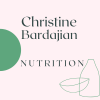Are you consuming enough wholegrains?
Many of us are focussing on low carb, high fat, high protein and are failing to include grains into our daily diets.
With the recent popularity of trendy diets such as paleo and keto, the health benefits and importance of including whole grains in the diet has been over looked. Whole grains provide prebiotic fibre which is important for gut health and diversity of the microbiome.
Evidence shows regular consumption of whole grains plays a valuable role in reducing the risks of heart disease, stroke, cancer, diabetes and obesity.
What are whole grains?
All grains such as wheat, rye, oats and rice start life as whole grains. When found in their natural state, whole grains consist of the entire seed of the plant. This seed or “kernel” is made up of three parts – the bran, the germ, and the endosperm – all of which are edible. This is protected by an inedible husk that protects the kernel from potential damage by sunlight, pests, water, and disease.
Unlike refined grains, whole grains contain all three parts of the kernel. When grains are refined or heavily processed, the bran and the germ are removed leaving only the endosperm. In removing the bran and germ about 25% of a grain’s protein is lost, plus valuable nutrients. Synthetic vitamins and minerals are added back to enrich the refined grains.
Whole grains can be milled into flour or used to make breads, cereals and other processed foods. They can be eaten whole, sprouted, cracked and milled. When purchasing food, check that the label on the packaging states that it contains whole grains which means that the “whole grain” part of the food is required to have the same proportions of bran, germ, and endosperm as the harvested kernel does before it is processed.
Whole grains are a far healthier choice providing more protein, more fibre and many important vitamins and minerals such as B vitamins, vitamin E, magnesium and iron. Whole grains contain valuable antioxidants.
Aim to include 3 serves of whole grains a day. Whole grains include buckwheat, oats, brown rice, quinoa, bulgur, barley, corn, barley, rye, teff, farro.


Leave a comment